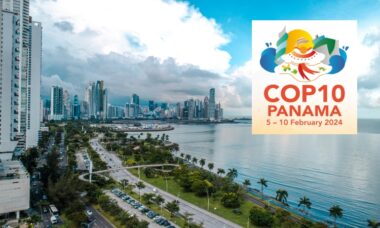
 LATEST ALERTS
LATEST ALERTS
- Israel Ministry warns against vape products containing synthetic cannabinoid ...
- Russia Ministry publishes draft law on tobacco and nicotine licensing ...
- Ireland HSE issues safety alerts about three vaping products ...
- Jordan Cancer foundation warns against nicotine use ...
- Europe EC to propose higher taxes for nicotine alternatives ...
- United States DC and 19 states file lawsuit against health officials over HHS cuts ...
- United States HHS and FDA invite public suggestions for deregulatory actions ...
- Illinois - United States Customs seizing vape shipments in crackdown at Port of Chicago ...
- Thailand Number of illict vape shops decreasing ...
- Belgium Plan to ban vaping on terraces still on track ...
- Czech Republic Updated list of notified herbal products, e-cigs and substitute refills ...
- China - United States Modified trade tariffs temporarily suspended ...




















































